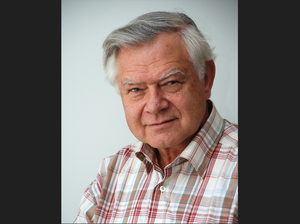Cutting edge research
The first meeting of the International Tokamak Physics Activity (ITPA) Coordinating Committee (CC) since its incorporation under the auspices of ITER took place in Aix-en-Provence on 30 June and 1 July (see also article to the left). The gathering of over 40 fusion experts, which was made up of senior fusion physicists from the ITER Members, the retiring Chairs and Co-Chairs of the ITPA Topical Groups, and the new appointees taking over from them, reviewed the work of the Groups over the last year and discussed the priorities for their research programmes in the next few years.
The meeting was opened by ITER Director General, Kaname Ikeda, who brought the CC up to date on the status of the ITER Project and thanked the outgoing Topical Group Chairs and Co-Chairs, who had served in these positions for periods of up to 9 years, for their important contributions to the development of the physics basis for ITER. The DG also presented the Chairs and Co-Chairs with a framed photograph of the ITER construction site in recognition of the role which they had played in co-ordinating international fusion research in support of ITER.
The CC, led by Chair Ron Stambaugh of the US, spent the first day reviewing the Topical Groups' reports on their research activities during the past year. The high quality of the research reported in these presentations makes them a highlight of the CC meetings — and an excellent opportunity to stay abreast of cutting edge research in fusion physics. The first day was rounded off by reports from the Participants' Contact Persons on major developments in their fusion research programmes in the coming year.
The second morning was devoted to a detailed discussion of major physics aspects of the ITER Design Review, the current status of the ITER Research Plan and ITER's high priority needs in physics research. This allowed an extensive exchange of ideas among the community experts and IO staff on how the ITPA could best contribute to ITER Physics R&D. A final session was devoted to formal aspects of the activity, including the provision of guidance to the Topical Groups on how they should develop their research programmes in response to the high priority needs identified by the IO.



